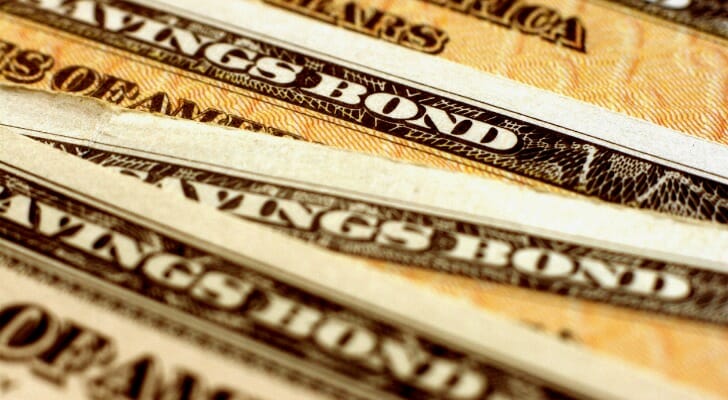
It is easy to enter the forex market. This can be accomplished by signing up for a forex brokerage. They will scan your documents to verify your identity and then ask you about your trading history. You will then be asked some more questions in a follow up questionnaire.
You might be wondering how much money is needed to trade. It depends on how large your investment. Equipment cost may also need to be considered. Software and hardware for trading can be quite costly. It is important to ensure that your broker is trustworthy. This will make sure that your personal data is safe and secure.
Understanding the market is key to making the best trading decisions. There are several factors that influence the price of currencies. The market is available 24 hours a days, five days per week. The market closes on Saturday at 00:00 GMT. This means that if you're a morning person, you may want to wait until the end of the trading day to make your moves.

The US Dollar is the most commonly traded currency in the forex market. It is also the most commonly traded currency in the world. The currency exchange is something you might have heard of, but may not be familiar with its purpose. The foreign exchange market is where currencies are bought and sold across different financial centers. It is also known to be the over-the counter market.
Forex is the largest global financial market. It is a highly liquid and volatile market that has a turnover of over $3.98 trillion each day. It is not a physically-located market. Instead, it is managed over the internet via a network made up of computers and bank account. It is not regulated like the stock market. Trading is banned in some countries. It is also illegal to trade in some countries.
Market dominance is determined by many factors including politics, wars, or natural disasters. It can also be affected by news and events. A trader who is well-informed will know market trends and be able use data to make informed trading decisions. This is the best method to increase your investment's value.
Forex trading can help you make additional income. It can also provide you with a way to support your family in retirement. There are many resources to help with your knowledge about currency trading. Many of the best resources available are free. Others can be purchased for a few hundred dollars.

Do your research. Then, decide how much money you're willing to invest. You may have to borrow money from a broker if you trade with large amounts of money. You may also want to consider reinvesting any profits that you make.
FAQ
What is the difference in a broker and financial advisor?
Brokers are individuals who help people and businesses to buy and sell securities and other forms. They handle all paperwork.
Financial advisors are experts on personal finances. Financial advisors use their knowledge to help clients plan and prepare for financial emergencies and reach their financial goals.
Financial advisors can be employed by banks, financial companies, and other institutions. Or they may work independently as fee-only professionals.
If you want to start a career in the financial services industry, you should consider taking classes in finance, accounting, and marketing. Additionally, you will need to be familiar with the different types and investment options available.
Why is a stock called security?
Security is an investment instrument whose worth depends on another company. It can be issued as a share, bond, or other investment instrument. The issuer promises to pay dividends and repay debt obligations to creditors. Investors may also be entitled to capital return if the value of the underlying asset falls.
What is security?
Security is an asset that generates income for its owner. Shares in companies are the most popular type of security.
A company could issue bonds, preferred stocks or common stocks.
The earnings per share (EPS), and the dividends paid by the company determine the value of a share.
If you purchase shares, you become a shareholder in the business. You also have a right to future profits. You will receive money from the business if it pays dividends.
Your shares can be sold at any time.
What is the distinction between marketable and not-marketable securities
The differences between non-marketable and marketable securities include lower liquidity, trading volumes, higher transaction costs, and lower trading volume. Marketable securities, however, can be traded on an exchange and offer greater liquidity and trading volume. Marketable securities also have better price discovery because they can trade at any time. However, there are some exceptions to the rule. Some mutual funds are not open to public trading and are therefore only available to institutional investors.
Non-marketable security tend to be more risky then marketable. They have lower yields and need higher initial capital deposits. Marketable securities are usually safer and more manageable than non-marketable securities.
A large corporation bond has a greater chance of being paid back than a smaller bond. The reason for this is that the former might have a strong balance, while those issued by smaller businesses may not.
Because they can make higher portfolio returns, investment companies prefer to hold marketable securities.
How can I find a great investment company?
You want one that has competitive fees, good management, and a broad portfolio. The type of security in your account will determine the fees. Some companies charge no fees for holding cash and others charge a flat fee per year regardless of the amount you deposit. Others may charge a percentage or your entire assets.
You should also find out what kind of performance history they have. You might not choose a company with a poor track-record. You want to avoid companies with low net asset value (NAV) and those with very volatile NAVs.
You also need to verify their investment philosophy. To achieve higher returns, an investment firm should be willing and able to take risks. If they're unwilling to take these risks, they might not be capable of meeting your expectations.
What is the difference between the securities market and the stock market?
The securities market refers to the entire set of companies listed on an exchange for trading shares. This includes stocks as well options, futures and other financial instruments. Stock markets are typically divided into primary and secondary categories. Stock markets are divided into two categories: primary and secondary. Secondary stock exchanges are smaller ones where investors can trade privately. These include OTC Bulletin Board Over-the-Counter, Pink Sheets, Nasdaq SmalCap Market.
Stock markets have a lot of importance because they offer a place for people to buy and trade shares of businesses. The price at which shares are traded determines their value. Public companies issue new shares. These shares are issued to investors who receive dividends. Dividends are payments made to shareholders by a corporation.
Stock markets serve not only as a place for buyers or sellers but also as a tool for corporate governance. Boards of directors, elected by shareholders, oversee the management. Boards make sure managers follow ethical business practices. If the board is unable to fulfill its duties, the government could replace it.
Statistics
- US resident who opens a new IBKR Pro individual or joint account receives a 0.25% rate reduction on margin loans. (nerdwallet.com)
- Ratchet down that 10% if you don't yet have a healthy emergency fund and 10% to 15% of your income funneled into a retirement savings account. (nerdwallet.com)
- Individuals with very limited financial experience are either terrified by horror stories of average investors losing 50% of their portfolio value or are beguiled by "hot tips" that bear the promise of huge rewards but seldom pay off. (investopedia.com)
- "If all of your money's in one stock, you could potentially lose 50% of it overnight," Moore says. (nerdwallet.com)
External Links
How To
How to Trade in Stock Market
Stock trading is the process of buying or selling stocks, bonds and commodities, as well derivatives. Trading is French for traiteur, which means that someone buys and then sells. Traders buy and sell securities in order to make money through the difference between what they pay and what they receive. It is one of oldest forms of financial investing.
There are many options for investing in the stock market. There are three main types of investing: active, passive, and hybrid. Passive investors watch their investments grow, while actively traded investors look for winning companies to make a profit. Hybrid investors take a mix of both these approaches.
Passive investing can be done by index funds that track large indices like S&P 500 and Dow Jones Industrial Average. This type of investing is very popular as it allows you the opportunity to reap the benefits and not have to worry about the risks. You can just relax and let your investments do the work.
Active investing means picking specific companies and analysing their performance. Active investors will look at things such as earnings growth, return on equity, debt ratios, P/E ratio, cash flow, book value, dividend payout, management team, share price history, etc. They decide whether or not they want to invest in shares of the company. If they feel that the company is undervalued, they will buy shares and hope that the price goes up. On the other side, if the company is valued too high, they will wait until it drops before buying shares.
Hybrid investments combine elements of both passive as active investing. One example is that you may want to select a fund which tracks many stocks, but you also want the option to choose from several companies. In this instance, you might put part of your portfolio in passively managed funds and part in active managed funds.